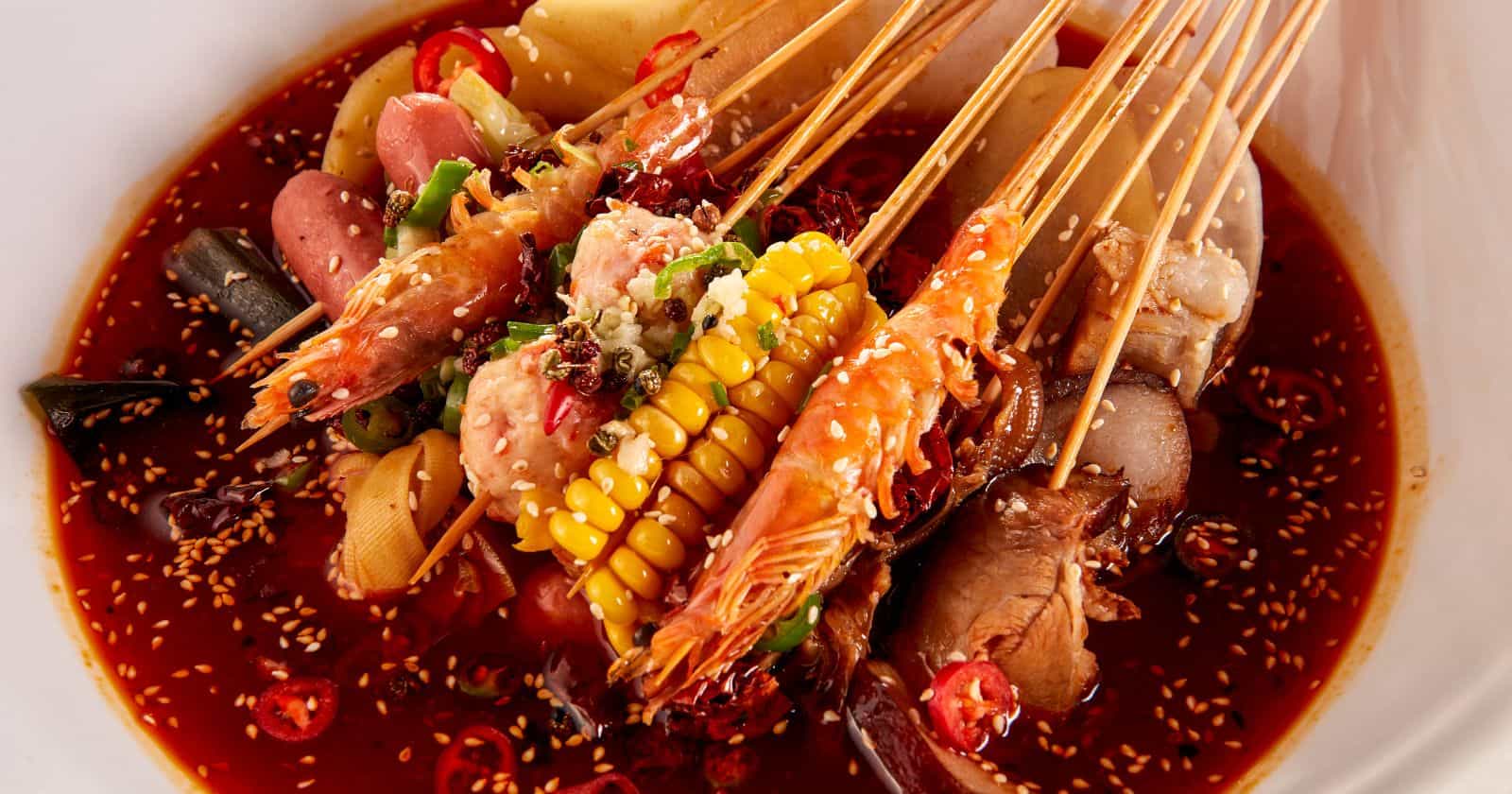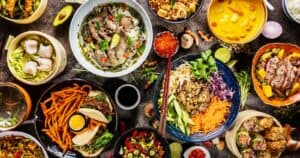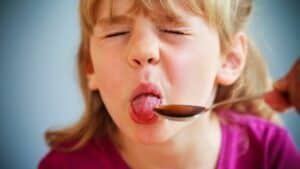Do you feel the urge to poop after devouring hot wings or your favorite curry? The seasoning on those buffalo wings and the heat in that curry can wreak havoc on your digestive system.
If you’ve ever wondered why spicy food makes you poop, there are a few likely explanations:
- Capsaicin: This compound gives chili peppers their kick and stimulates your digestion.
- Irritation: Spicy foods can irritate your intestines, causing contractions to expel the food faster.
- Increased Blood Flow: Spicy food brings more blood to your GI tract, which revs up digestion.
- Sensitivities: Some people’s bodies react more to spicy food, provoking bowel urges.
The good news? You can build your
Why Spicy Food Causes Poop Urges
There are a few reasons why spicy dishes can send you running:
Capsaicin
This compound gives chilis their heat and kickstarts your digestive system, causing food to move through your intestines more rapidly.
Gut Irritation
Spicy foods can irritate your stomach lining and intestines, provoking muscle contractions to expel the irritant – aka diarrhea!
Increased Blood Flow
Spicy foods dilate blood vessels and amp up blood flow to your GI tract. This ratchets up intestinal activity and contractions.
Individual Sensitivity
Some folks’ digestive systems are more sensitive to capsaicin’s effects. Gender, genetics, and medical conditions also play a role.
How Capsaicin Affects Digestion
The spicy chemical capsaicin is the main reason for your burning mouth and urgent poop urges after eating chili peppers. Here’s how it works:
Stimulates Pain Receptors
Capsaicin activates receptors in your mouth, stomach, and intestines that sense heat and pain, making your brain think you’re literally on fire!
Increases Gut Motility
The irritation amps up contractions in your intestines to move food through faster. This speeds up digestion, causing looser poop.
Boosts Blood Flow
The dilation of blood vessels increases blood flow to your GI tract. This surge in blood ratchets up intestinal activity.
Impacts Gut Bacteria
Capsaicin may reduce unhealthy gut bacteria linked to stomach inflammation, bloating, and other digestion issues.
Spicy Food and Diarrhea
Yes, eating spicy foods can definitely cause diarrhea for those sensitive to the effects of capsaicin. The irritation and increased motility provoke loose, urgent stools.
Factors that can worsen diarrhea from spicy food:
- Overeating spicy dishes
- Having underlying gut issues like IBS
- Consuming other gut irritants like coffee, alcohol or dairy
- Taking certain medications that affect digestion
- Eating too quickly and not chewing properly
Preventing diarrhea may mean avoiding or limiting spicy food. Taking antidiarrheal medication can relieve symptoms.
Strategies to Handle Spicy Food
With the right preparation, you can enjoy spicy cuisine without unwanted bathroom trips:
- Gradually increase
spice levels in your meals over time to build tolerance - Balance spicy dishes with bland carbs like rice or bread
- Skip the hot sauce and opt for milder spices like paprika
- Limit intake of chilis and other common fire-starters
- Stay hydrated before, during and after eating spicy foods
- Take an over-the-counter antidiarrheal med as needed
- Avoid spicy food if you have chronic gut issues like IBS
Managing GERD
Spicy foods can aggravate gastroesophageal reflux disease (GERD), a condition where stomach acid frequently backs up into the esophagus. The spices can relax the lower esophageal sphincter, allowing acid to reflux.
Heartburn, indigestion, chest pain, sore throat and regurgitation are common symptoms of GERD flare-ups. Those with the condition may need to limit or avoid spicy foods to prevent triggers.
Tips for managing GERD while enjoying spicy cuisine:
- Stick to mild spices like paprika and avoid chili peppers.
- Balance spicy dishes with bland foods like rice, bread or yogurt.
- Don’t lie down right after eating spicy foods.
- Limit acidic foods like citrus fruits that may also trigger reflux.
- Take antacids as needed to neutralize stomach acid.
- Wear loose clothing that doesn’t put pressure on the abdomen.
- Maintain a healthy weight to reduce pressure on the lower esophageal sphincter.
- Quit smoking and limit alcohol intake, as these can worsen GERD.
With proper management, those with GERD can still enjoy some spicy flavors in moderation. Work closely with your doctor and dietitian to control symptoms.
Health Perks of Spicy Food
Beyond heating things up, chili peppers and spicy dishes offer some science-backed health benefits:
- Boosts metabolism, potentially aiding weight loss
- Reduces inflammation and arthritis pain
- Improves digestion and relieves constipation
- Strengthens immunity with antioxidants
- Lowers cholesterol and improves heart health
- May have anticancer and anti-tumor effects
So don’t totally avoid
Soothing Foods
Pairing spicy dishes with bland, soothing foods can help counterbalance the fiery spices and prevent stomach irritation and diarrhea. Some good options include:
- Yogurt – The probiotics and protein in yogurt can help calm an upset stomach. Plain, unsweetened varieties are best.
- Rice – The starchy, bland nature of rice helps absorb spices and excess fluids in the gut.
- Bread – Similar to rice, bread acts as a mild binding agent and absorber of irritants. Go for whole grain varieties.
- Cucumber – The high water content in cucumbers helps hydrate and flush out irritation from spicy foods.
- Melons – Watermelon, cantaloupe and honeydew have high water and nutrient content to hydrate and soothe the GI tract.
- Milk – The fat, protein and liquid in milk can coat, soothe and rehydrate the digestive tract when eating spicy dishes.
Mixing small portions of spicy foods with larger amounts of bland staples like rice, bread, yogurt and fruit can help counter the heat. This balances out the meal and prevents tummy troubles.
When to See a Doctor
Occasional diarrhea after spicy meals is normal. But if you experience:
- Severe abdominal cramping or pain
- Diarrhea lasting over 3 days
- Blood or mucus in stool
- Fever over 101°F
- Signs of dehydration like dizziness
Seek medical care to rule out potential causes like:
- Food poisoning
- IBS
- Inflammatory bowel disease
- Celiac disease
- Gastritis
Severe reactions to spicy food could signify an underlying condition. Getting an accurate diagnosis is key to proper treatment and prevention.
Takeaway on Spicy Food and Pooping
If you love hot sauce but hate the digestion disruption, don’t sweat it! Using caution with your chili intake, drinking lots of fluids, and taking anti-diarrheals can let you enjoy
Pay attention to your body’s signals and talk to your doctor if problems persist. With some care, you can savor that beloved burn without burning up the toilet!





